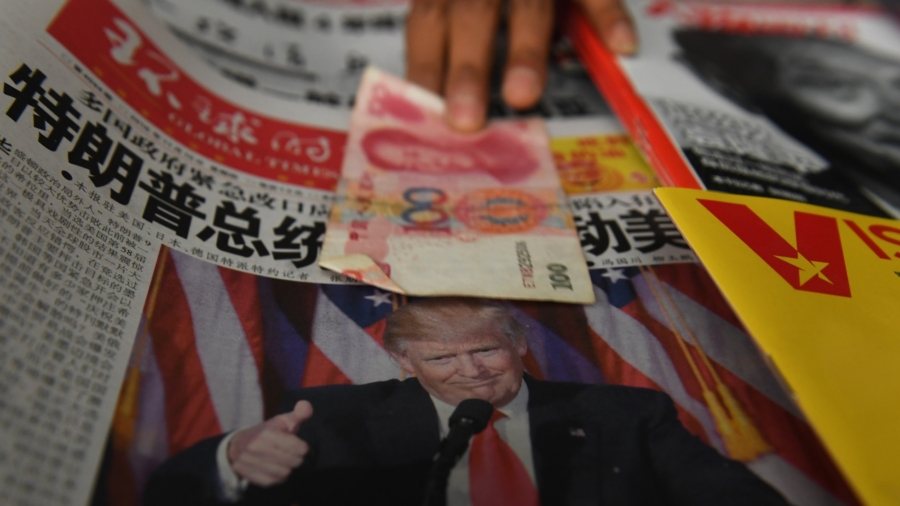The US can find a solution for most vulnerabilities, but China cannot.
President-elect Donald Trump talks tough on China and has appointed trade hawks Wilbur Ross and Peter Navarro to key positions in his administration. He has threatened to slap a blanket tariff on Chinese goods, and he has spoken directly to Taiwan’s president, something previously regarded as a major diplomatic offense.
According to “Road to Ruin” author James Rickards, this is Trump’s way of opening the negotiations with China to reach a mutually beneficial trade relationship.
“[Trump] is saying to China: ‘Here is where we are going to start, what have you got for us? Are you willing to be more flexible on foreign direct investment, are you willing to treat U.S. companies in China more fairly, are you willing to stop the theft of intellectual property?’” Rickards told the BBC.
“If China makes concessions on these points, he can say, ‘Fine, now my tariff is [lower].’ It’s the art of the deal; people don’t understand that about Trump,”
However, in any deal, the other party also has some negotiating chips on the table, and China, for example, can hurt American companies exporting to China or operating in China.
So who has the upper hand in the negotiations? According to a report by research firm Geopolitical Futures (GPF), the United States would suffer some damage in a trade war, but would come out on top in the end.
“China would feel the impact of U.S. protectionist measures more than the U.S. would feel any economic retaliation China has at its disposal,” the report states.
What’s at Stake?
The most important point for both countries is the symbiotic relationship between China the exporter and the United States the importer, between Chinese workers who produce cheap goods and U.S. consumers who buy them.
According to the U.S. Census, the United States imported $483 billion worth of goods from China in 2015. Since China joined the WTO in 2001, the United States has been the top importer of Chinese goods in all but one year.
In an extreme thought experiment, about 15 million Chinese workers in the export sector could lose their jobs if Americans stopped importing from China altogether, a nightmare for the Chinese regime, which depends on employment to keep the people happy and itself in power.
On the other hand, the United States depends on China for cheap imports. More than 90 percent of all imported umbrellas and walking sticks come from China, for example. China produces 22 percent of all the stuff the United States imports.
Sourcing these products from somewhere else or producing them onshore will be difficult and almost certainly make them more expensive. However, this is a nuisance compared to the impact of leaving 15 million Chinese people unemployed.
“U.S. dependence on Chinese goods is a matter of convenience,” states the GPF report. The analysts say the United States has ample spare capacity in manufacturing to eventually make up for the shortfall.
This is an excerpt. Read the full article by Valentin Schmid on Epoch Times.

